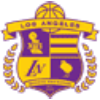In no other profession are you ever compared to your predecessors as much as you are in the professional coaching industry. Mike Brown had some colossal shoes to fill when he was hired as the head coach of the Los Angeles Lakers to replace the legendary Phil Jackson.
The expectations for Brown this year were sky high, as Laker fans expected the team to contend for a championship whenever Jackson coached a team led by Kobe Bryant. Thus the expectations of Brown were the same; with great power, comes great responsibility, as Peter Parker’s uncle told him in the first Spider-Man movie starring Tobey Maguire.
When Jackson first vacated his (elevated) coaching seat in 2004 after the humiliating NBA Finals defeat to the Detroit Pistons, long-time Rockets’ head coach Rudy Tomjanovich took over the job before being forced to resign due to medical reasons. The Lakers finished that year 34-48, missing the playoffs entirely for the first time in the Kobe Bryant-Derek Fisher era. It was evident that the Lakers’ needed Phil Jackson’s guidance as much as the Zen Master missed coaching.
Jackson returned as the head coach the following season, leading the Lakers to three more Finals appearances before retiring for good last year (unless New York can successfully persuade him to return).
The Lakers were in a similar predicament this time around: a disappointing playoff exit to the Mavericks coupled with Jackson’s retirement left many wondering which direction the franchise would take under Jim Buss.
Enter Mike Brown, the defensive minded protégé of Gregg Popovich. Brown had five productive seasons as head coach of the Cleveland Cavaliers, in fact he won the Coach of the Year award in 2009. While Brown led the Cavs to fantastic regular season finishes, he never led them to the elusive NBA championship, which was the primary reason why he was shown the door in 2010.
Shaquille O’Neal wrote in his latest autobiography that during his years in Cleveland, LeBron James was afforded special treatment from Brown: “Our coach, Mike Brown, was a nice guy, but he had to live on edge because nobody was supposed to be confrontational with LeBron. Nobody wanted him to leave Cleveland, so he was allowed to do whatever he wanted to do.”
O’Neal’s revelations were a cause for concern for the Lakers. If Brown couldn’t handle a high-maintenance superstar in Cleveland, what were the chances he could handle the biggest ego in the league in Los Angeles?
While I’m not aware of how Brown massaged the many egos in the Lakers’ locker room this year, I’d say he’s done a fine job of maximizing the talent he was given; guiding the Lakers to a third place finish in a tightly contested Western Conference. By that alone, Brown deserves a passing grade.
Brown has shown defiance when he needs to. He benched Kobe Bryant in the fourth quarter during a game against the Memphis Grizzlies when he was clearly struggling. He also benched Andrew Bynum for taking a wild three-pointer against the Golden State Warriors.
Most recently in the Sunday showcase against the Oklahoma City Thunder, Brown showed he had the confidence to stick with the unit (Steve Blake, Kobe Bryant, Devin Ebanks, Jordan Hill, Pau Gasol) that led the unlikely comeback from 17 points down even though they weren’t his best five players. After the win, Bryant shaking Brown’s hand was a defining moment in the season for me.
But Brown’s season doesn’t go without criticism. The Lakers were notorious for giving up early leads this season, a by-product of Brown’s inability to modify his game-plan on the fly. During a week in March, the Lakers relinquished half-time leads to the Washington Wizards and the Detroit Pistons in back to back games. Yikes.
Brown’s rotations were also more erratic than a teenager’s emotions: take Devin Ebanks for example, he went from the starter on opening day against the Chicago Bulls, to bench warmer for most of the season, now he’s receiving major minutes again near the end of the year. Brown’s lack of consistency when it comes to playing time is worrisome, as most teams expecting to contend for a championship have an established eight-man rotation for the playoffs long before they begin.
Los Angeles finished the year 39-23 under Brown (a winning percentage of .629), in Jackson’s second tenure with the Lakers went 323-169 (a .657 winning percentage). The real test for Mike Brown and his Los Angeles Lakers begins Sunday afternoon when every possession becomes more meaningful.
With great power, comes great responsibility, Mr. Brown, remember that.






